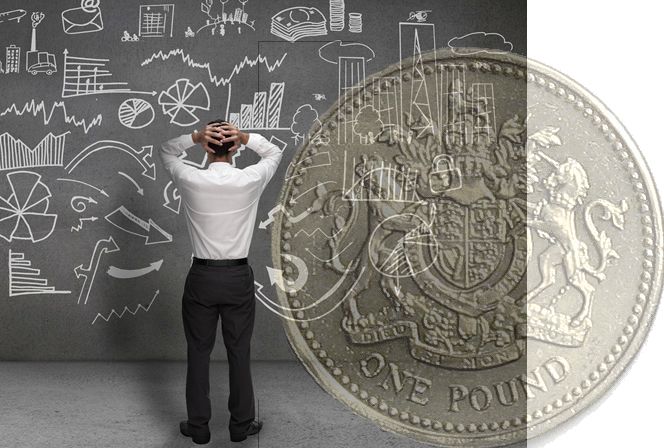GBP/EUR Rate Outlook: Risk for GBP to Squeeze Higher on May Speech

- Performance:
- GBP to EUR: Now at 1.1375, opened the week at 1.1308, week's low at 1.1286
In a much anticipated speech, UK Prime Minister May should at 1:145 GMT introduce the concept of a 'Clean Brexit'.
All the indications in the British press suggest it will be modelled on a series of views outlined in a policy paper released at the week-end.
The paper suggests the UK leaves the single market and the customs union and being prepared to default to WTO rules if necessary.
Pound Sterling has gradually recovered against the Euro through the course of the past 24 hours following a knee-jerk sell-off at the start of the week.
Part of the recovery will be because markets are probably reaching fatigue on the negative-GBP play and are wary that the UK Prime Minister might deliver a positive surprise in her much-anticipated speech.
So far, Theresa May has deflected the question of hard or soft Brexit, saying:
“I don’t accept the terms hard and soft Brexit”… we’re going to get an ambitious, good and best possible deal for the UK in terms of trading with and operating within the single European market”.
Analyst Elsa Lignos at RBC Capital Markets believes if she will not state it clearly when questioned, she may not state it any clearer in her speech – “which could disappoint those looking for a further GBP sell-off.”
Making it a theme at RBC, Lignos' colleague Adam Cole tells his clients, "As is clear from the price action in GBP since May’s speech was announced, expectations have built for the substance of the speech to point in the direction of a hard- exit. With expectations so skewed, it is hard to see what May can say that will do much more damage to GBP. For us, the greater risk is that GBP squeezes higher as shorts are covered."

Markets continue to bet heavily against Sterling in anticipation of this inevitable exit from the single market, with data from the CFTC confirming selling the currency remains one of the more popular foreign exchange trades of 2017.
But, nothing ever moves in a straight line in finance and we believe risks have increased that some recovery strength lies ahead.
“Current choppy consolidation can still prompt another short term GBP rebound over coming sessions,” says Lucy Lillicrap, a technical analyst with foreign exchange brokerage AFEX in London.
Analyst Kit Juckes at Societe Generale believes “a significant move lower surely requires harder evidence of economic weakness.”
“I doubt there's enough here to get EURGBP through 0.90 or to get GBP/USD sustainably much below 1.20 on a lasting basis and if anything, Tuesday is more likely to see a short-covering bounce,” says Juckes.
How Long can the Good Economic News be Ignored?
As Soc Gen’s Juckes mentions, it will take a notable deterioration in economic fundamentals to pressure Sterling sharply lower.
However the news on the economic front is good with the IMF announcing an upgrade to the UK's growth profile on Monday January 16.
The IMF's World Economic Outlook now sees UK growth standing at 1.5% in 2017, up from a previous forecast for 1.1%.
The IMF based the upgrade on the observation that domestic demand has held up better than expected in the aftermath of the Brexit vote.
"The IMF bumped up expectations for UK growth this year to 1.5% from 1.1%. Pretty hard not to when 2016 growth came in at 2%. Brexit notwithstanding, the UK’s 2% expansion bettered the 1.7% seen in the US and Germany, France’s 1.1% and Japan and Italy’s 1%. For 2017, the IMF now expects global growth of 3.4% compared to 3.1% previously," says David Carbon at DBS in Singapore.
As we note in this report, the strong economic performance of the UK economy is at odds with the Pound's valuation - in short - it is grossly undervalued.
If we compare the Pound’s valuation with economic fundamentals which have the UK as the fastest growing G7 country at present, we can see the relationship is way out of kilter.
This confirms that sentiment, and not economic reality are in charge. Estimates from HSBC suggest that were fears over Brexit not in the equation GBP/USD could be trading as high as 1.55.
Can this undervaluation persist though?
“It must be deeply noted that these changes in the markets are purely sentiment based, the UK’s thriving economy is not under crisis and there is no requirement for fearful speculations based solely on sentiment,” says Paresh Davdra, CEO and Co-Founder of RationalFX a foreign exchange brokerage based in Canary Wharf, London.
Davdra believes foreign exchange markets have been reacting haphazardly over continued uncertainty but as clarity emerges especially through the PM’s much awaited speech tomorrow.
“We are hopeful that the pound is set to bounce back,” says Davdra.
Davdra reflects that even as Britain exits the single market, opportunities not considered before are bound to open more doors. U.S. President-elect, Donald Trump’s recent comments regarding a ‘fair-trade deal’ for the U.K. very ‘quickly’ is quite a turn from Obama’s ‘back of the queue’ retort.
“Regardless, investors will have to adapt to change and stop their knee-jerk reactions as fluctuations continue,” says Davdra.




